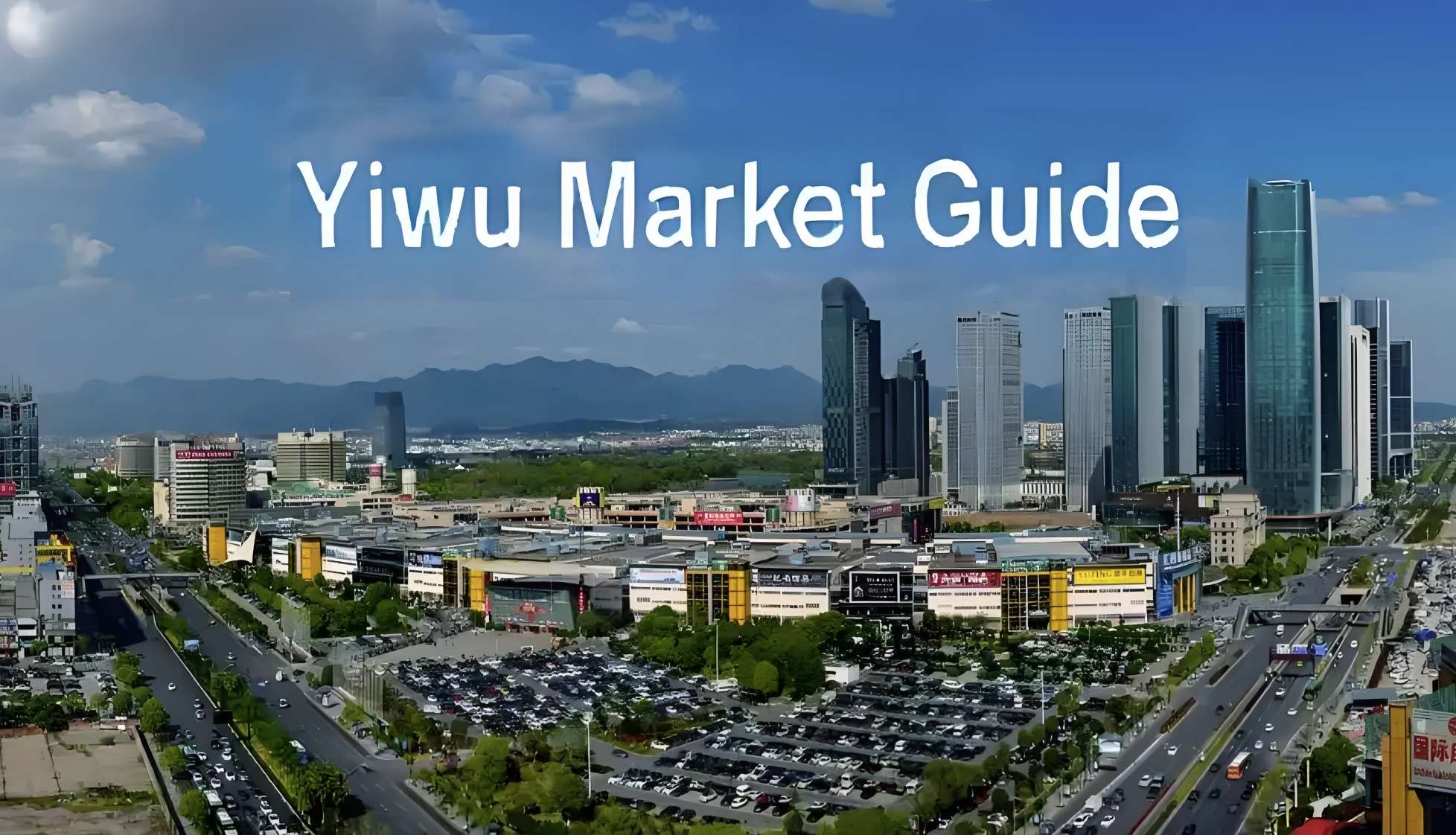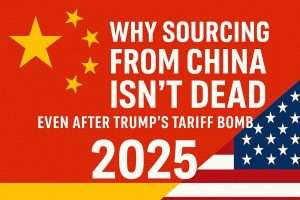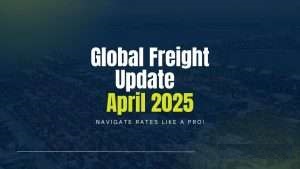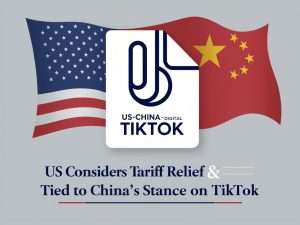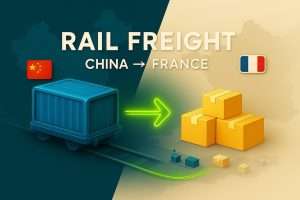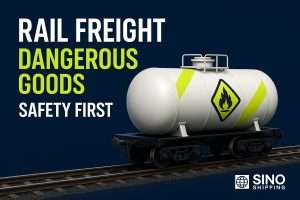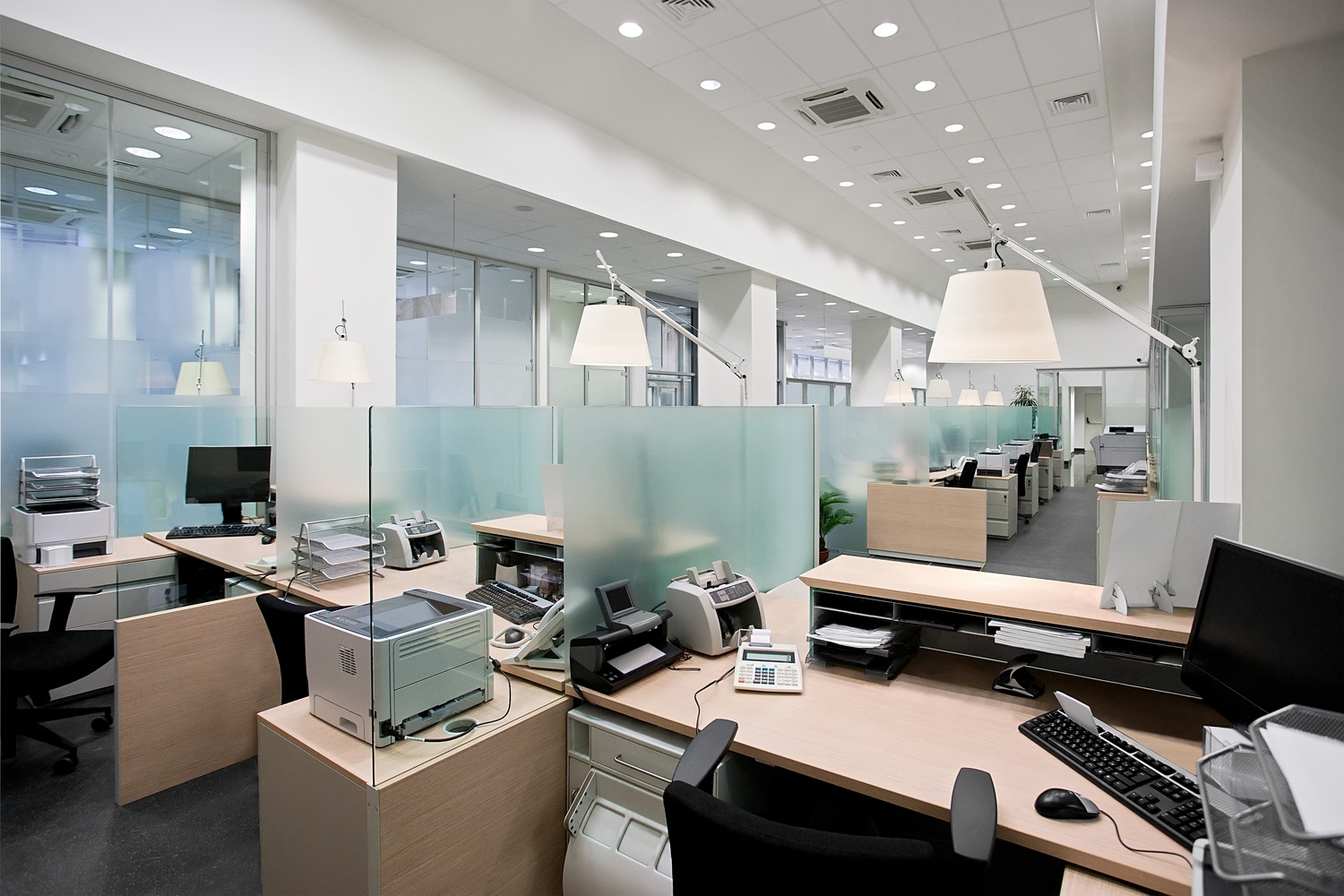Have you ever wondered how some businesses consistently stock their shelves with unique, high-margin products that keep customers coming back? The secret lies in Yiwu Market—a sprawling wholesale wonderland in China, offering millions of products at unbeatable prices. Whether you’re an experienced importer or just starting your journey, Yiwu holds the key to scaling your operations like never before.
This guide goes beyond the basics. You’ll discover how to navigate the market’s vast layout, spot reliable suppliers, master negotiation techniques, and avoid costly pitfalls. Every section is packed with actionable insights to ensure you stay ahead of the competition.
By the end of this guide, you’ll be equipped with a step-by-step strategy to maximize profits and streamline your operations. With practical tips, insider secrets, and expert tools at your fingertips, your Yiwu sourcing trip will go from overwhelming to effortless.
Let’s dive in and uncover how to turn Yiwu Market into your ultimate competitive advantage.
1. What is the Yiwu Market?
1.1 Overview of the Yiwu Market
Key Facts That Make Yiwu a Global Sourcing Hub
- Massive Scale: With over 75,000 booths spread across 2 million square meters, Yiwu Market is a labyrinth of opportunity.
- Unmatched Product Variety: You’ll find over 400,000 products, ranging from electronics to home goods, toys, apparel, and beyond.
- Accessibility for Small Buyers: Unlike many wholesale markets that cater exclusively to bulk orders, Yiwu’s low MOQs (Minimum Order Quantities) make it ideal for small and medium-sized businesses.
Why Yiwu Market is Unique
What sets Yiwu Market apart isn’t just its size—it’s how it democratizes sourcing. You don’t need to place massive orders to get started. Many suppliers offer low minimum order requirements, enabling startups to test products without overcommitting. Plus, the market’s dedicated sections make it easy to target specific niches.
1.2 Market Organization
Overview of Yiwu Market Layout

- District 1: Jewelry, toys, accessories, and artificial flowers.
- District 2: Hardware, electrical products, kitchenware, and home appliances.
- District 3: Office supplies, sporting goods, cosmetics, and watches.
- District 4: Towels, bedding, shoes, and fabrics.
- District 5: Imported goods, car accessories, and high-tech products.
Pro Tip: Start by researching which district aligns with your product needs. If you’re sourcing electronics, for instance, District 2 is your go-to destination.
Practical Tips for Efficient Navigation
- Bring a Map or Download a Yiwu App: Many apps provide interactive maps to help you locate specific booths or districts.
- Plan Your Route: Yiwu is vast, so focus on one or two districts per day to avoid feeling overwhelmed.
- Take Notes: Keep track of booth numbers, suppliers, and pricing as you explore. It’s easy to forget details in such a large space.
1.3 Categories of Products
Top Product Niches to Explore
- Seasonal Items: Holiday decorations, festival accessories, and event-specific products.
- Why They’re Profitable: Seasonal products typically have high demand and fast turnover.
- Promotional Gifts: Custom pens, branded tote bags, and corporate giveaways.
- Why They’re Profitable: Businesses constantly need promotional items, ensuring steady demand.
- Niche Consumer Products: Eco-friendly goods, pet accessories, or fitness gear.
- Why They’re Profitable: These items cater to specific audiences with strong buying intent.
Popular Product Categories and Average MOQ
| Category | Example Products | Average MOQ |
|---|---|---|
| Seasonal Items | Christmas ornaments | 200–500 units |
| Promotional Gifts | Branded keychains | 100–300 units |
| Niche Consumer Products | Eco-friendly utensils | 50–200 units |
2. Why Choose Yiwu Market for Sourcing?

Yiwu Market isn’t just the largest wholesale market in the world—it’s a game-changer for businesses of all sizes. From unbeatable prices to unparalleled variety, it’s designed to cater to every sourcing need. However, like any sourcing destination, Yiwu comes with its challenges. Let’s break down the advantages and solutions to common obstacles.
2.1 Advantages of Yiwu Market
1. Cost Efficiency
One of Yiwu’s biggest selling points is its low-cost structure, which makes it a preferred choice over platforms like Alibaba or regional wholesalers.
- Direct factory access: Many booths are run by manufacturers, cutting out middlemen.
- Better bulk pricing: Suppliers often offer discounts for larger orders, significantly lowering the cost per unit.
Example: A branded pen that costs $1.50 on Alibaba can be sourced for $0.80–$1.00 at Yiwu Market when ordering in bulk.
2. Flexibility in Order Sizes
Unlike traditional wholesale markets with high MOQs (Minimum Order Quantities), Yiwu caters to businesses of all sizes:
- Small businesses: MOQs starting as low as 1 unit for some products.
- Larger buyers: Scalable orders from 1,000+ units with volume discounts.
Pro Tip: Start small to test product quality before scaling orders for maximum profit.
3. Access to a Variety of Suppliers
Yiwu Market consolidates tens of thousands of suppliers under one roof, simplifying your search for the perfect product.
- You can compare multiple suppliers for the same product in a single day, saving time and effort.
- Customizable options: Many suppliers allow for custom branding and packaging, perfect for businesses building their brand identity.
2.2 Challenges and Solutions
Challenge 1: Quality Control
One of the biggest concerns when sourcing from Yiwu is ensuring product quality.
- Why it’s a problem: Booths often display high-quality samples, but the bulk order may not match the sample.
- Solution: Use third-party inspection services like SGS or TUV. These companies conduct on-site inspections to verify that the goods meet your expectations before shipment.
Pro Tip: Always request a pre-production sample and a final inspection report.
Challenge 2: Language Barriers
Most Yiwu suppliers speak limited English, which can lead to misunderstandings.
- Why it’s a problem: Miscommunication can result in incorrect orders, delays, or higher costs.
- Solution:
- Hire a bilingual sourcing agent who can bridge the language gap and negotiate better terms on your behalf.
- Use translation apps like Google Translate for basic communication during initial discussions.
Example: Hiring an agent costs about $100–$300 per day, but they can save you significantly on negotiation and logistics.
Challenge 3: Logistics Confusion
Shipping goods from Yiwu to your country can feel overwhelming with so many options and hidden costs.
- Why it’s a problem: Inexperience with shipping terms like FOB, CIF, or EXW can lead to unexpected expenses.
- Solution: Partner with an experienced freight forwarder who handles:
- Consolidation of goods from multiple suppliers.
- Accurate shipping quotes based on your volume and destination.
Pro Tip: Always compare quotes from 2–3 freight forwarders to ensure competitive pricing.
3. Preparing for Your Yiwu Market Trip
Embarking on a sourcing journey to Yiwu Market can be a transformative experience for your business. Proper preparation is key to maximizing the benefits of your trip. Here’s a comprehensive guide to ensure you’re well-prepared:
3.1 Travel Logistics
Visa Requirements for Yiwu Visitors
Before traveling to Yiwu, ensure you have the appropriate visa:
- Tourist Visa (L Visa): Suitable for those visiting China for tourism purposes. Requirements typically include a valid passport, completed application form, recent photograph, and proof of travel arrangements.
- Business Visa (M Visa): Ideal for individuals visiting for commercial and trade activities. Additional documents, such as an invitation letter from a Chinese business partner, may be required.
Note: Visa policies can vary based on your nationality and current regulations. Always consult the Chinese Embassy or Consulate in your country for the most up-to-date information.
Best Hotels Close to Yiwu Market
Staying near Yiwu International Trade City (Futian Market) offers convenience. Here are some top-rated hotels:
- Yiwu Marriott Hotel: A 5-star hotel located just a 3-minute walk from Districts 1 and 2 of the market. Offers luxurious amenities and proximity to shopping centers.
- Best Western Premier Ocean Hotel: Situated within the market area, this 4-star hotel provides direct access to the market and comfortable accommodations.
- Yindu Hotel (YANDOO HOTEL): Approximately a 10-minute drive from the market, this hotel is close to the Yiwu Night Market, offering a blend of convenience and local culture.
Tip: Booking in advance is advisable, especially during trade fairs or peak seasons, to secure the best rates and availability.
3.2 Research and Budget Planning
Researching Product Trends
Understanding current market trends is crucial for making informed sourcing decisions:
- Google Trends: Analyze the popularity of specific products over time to gauge demand.
- Niche Product Marketplaces: Platforms like Etsy or niche-specific online stores can provide insights into emerging products and consumer preferences.
Estimated Costs for a Yiwu Sourcing Trip
Planning your budget helps in managing expenses effectively. Here’s a breakdown of potential costs:
| Expense Category | Estimated Cost (USD) |
|---|---|
| Visa Application | $140 (varies by country) |
| Round-Trip Airfare | $800 – $1,500 |
| Accommodation | $50 – $150 per night |
| Daily Meals | $20 – $50 per day |
| Local Transportation | $10 – $30 per day |
| Interpreter/Agent Fees | $100 – $300 per day |
| Miscellaneous Expenses | $200 – $500 |
Note: These are approximate costs and can vary based on personal preferences and market conditions.
3.3 Must-Have Tools for Buyers
Equipping yourself with the right tools can enhance efficiency during your trip:
- Portable Wi-Fi Hotspot: Ensures constant internet access for communication and research.
- Translation Apps: Applications like Google Translate can assist in overcoming language barriers.
- Currency Converter Apps: Stay updated with real-time exchange rates to make informed financial decisions.
- Mobile Note-Taking Tools: Apps like Evernote or Microsoft OneNote help in organizing information and keeping track of supplier details.
Recommendation: Ensure all devices are fully charged and consider carrying portable chargers to stay connected throughout the day.
4. How to Navigate Yiwu Market Like a Pro
Navigating Yiwu Market, the world’s largest wholesale market, can be overwhelming without a clear plan. With its vast size and thousands of suppliers, it’s essential to approach your visit with efficiency and strategy. This section provides actionable tips to maximize your time, identify quality suppliers, and negotiate effectively.
4.1 Planning Your Day at Yiwu Market
Best Times to Visit Each Section
Suppliers in Yiwu Market are generally available from 9:00 AM to 5:00 PM, but here’s how to optimize your schedule:
- Morning: Focus on high-demand sections like electronics and toys. Suppliers are fresh and more attentive early in the day.
- Afternoon: Visit slower-paced areas like home goods or seasonal items to avoid crowds and have more in-depth discussions.
- End of Day: Reserve the last hour for revisiting booths or following up on products that caught your attention earlier.
Efficient Navigation Tips
- Bring a Physical Map: Available at most hotels or the market entrance, these maps highlight the market’s five districts and their respective categories.
- Download Yiwu Market Apps: Tools like Yiwu Global or Futian Market Navigation App provide booth locations, supplier details, and real-time updates.
- Plan Your Route: Focus on one district per day to avoid unnecessary backtracking and fatigue.
Pro Tip: Wear comfortable shoes and carry water. Yiwu Market is vast, and you’ll likely walk several kilometers during your visit.
4.2 Spotting Quality Suppliers
With over 75,000 booths, identifying reliable suppliers is critical to your sourcing success. Here’s how to separate the best from the rest.
Red Flags to Avoid Scams
- Unclear Communication: Suppliers who struggle to provide clear answers about product details, pricing, or delivery times.
- No Business License: Ask for their business license to verify legitimacy. Genuine suppliers will provide it without hesitation.
- Suspiciously Low Prices: Extremely low prices often indicate substandard quality or potential bait-and-switch tactics.
How to Ask for Product Samples and Verify Legitimacy
- Request Samples: Politely ask for a sample of the product you’re interested in purchasing.
- Example phrase: “Could you provide a sample before we finalize the order?”
- Inspect the Sample: Examine materials, durability, and finish. Compare the sample with displayed products to ensure consistency.
- Inquire About Certifications: If your product requires certifications (e.g., CE, FDA), ask the supplier to provide documentation.
Pro Tip: Take detailed notes and photos of the products and supplier booths for future reference.
4.3 Mastering Negotiations
Negotiation is an art, and Yiwu Market suppliers expect buyers to bargain. Approach negotiations with confidence and preparation.
Phrases to Use for Effective Bargaining
- Start with politeness to build rapport:
- “This is a great product. Could we discuss a better price for bulk orders?”
- “I’m planning to buy in larger quantities. Can we negotiate a discount?”
- Leverage competitors:
- “Another supplier offered a lower price. Can you match or beat it?”
- Push for value-added services:
- “Could you include free samples or better packaging in this deal?”
Typical Price Ranges for Common Products
| Product Category | Example Product | Typical Price Range (USD) | MOQ |
|---|---|---|---|
| Toys | Plastic action figures | $0.50 – $1.50 | 200 |
| Home Goods | Ceramic mugs | $1.00 – $2.50 | 100 |
| Electronics | USB chargers | $2.00 – $5.00 | 50 |
Pro Tip: Be prepared to walk away if negotiations stall. Suppliers often lower their price as you leave their booth.
5. Should You Work with an Agent?
Yiwu Market offers incredible opportunities, but navigating its complexities can be overwhelming, especially for first-time buyers. This is where a Yiwu agent comes in—a professional who simplifies the sourcing process, handles logistics, and ensures you avoid costly mistakes. Let’s explore the benefits of hiring an agent and how to choose the right one.
5.1 Benefits of Using a Yiwu Agent
Working with a Yiwu agent can save you time, money, and headaches. Here’s why:
1. Supplier Screening
Yiwu agents have extensive local networks and experience vetting suppliers.
- Why it’s important: Not all suppliers in Yiwu are legitimate or reliable. An agent ensures you work with trustworthy businesses.
- Agent’s role: Verify business licenses, product certifications, and supplier reputation.
2. Negotiation Support
Agents are skilled negotiators who understand market dynamics.
- Why it’s important: Suppliers may inflate prices for foreign buyers.
- Agent’s role: Use local knowledge to secure the best prices and terms, saving you money.
3. Quality Control
Agents oversee the production process and inspect goods to ensure quality standards.
- Why it’s important: Many buyers face issues with subpar products.
- Agent’s role: Conduct pre-shipment inspections and provide reports with photos/videos.
4. Logistics and Shipping
Agents manage all aspects of shipping, from packaging to freight forwarding.
- Real-life example: A buyer ordered 1,000 units of ceramic mugs and faced a $2,000 overcharge due to inefficient shipping arrangements. The agent consolidated shipments from multiple suppliers, reducing costs significantly.
Pro Tip: When working with an agent, clarify your expectations upfront to avoid miscommunication.
5.2 How to Choose the Right Agent
Not all Yiwu agents are created equal. Use this checklist to evaluate and select the best one for your needs:
Checklist for Evaluating Yiwu Agents
- Transparency in Fees
- A trustworthy agent provides clear, upfront pricing.
- Watch out for hidden charges or vague cost breakdowns.
- Local Office Presence
- Agents with offices in Yiwu can provide on-the-ground support.
- This is crucial for real-time problem-solving and supplier follow-ups.
- Proven Track Record
- Look for agents with positive reviews and testimonials.
- Check their portfolio to see if they’ve worked with businesses in your industry.
- Range of Services
- Does the agent offer supplier vetting, negotiation, quality control, and logistics?
- A full-service agent simplifies the process and adds more value.
- Communication Skills
- Ensure the agent is fluent in both English and Chinese.
- Effective communication minimizes misunderstandings and ensures smooth transactions.
6. Shipping and Logistics
Sourcing from Yiwu Market is only half the battle. Getting your products shipped efficiently and cost-effectively to your destination is equally crucial. This section simplifies the shipping process, from understanding key terms to comparing methods and ensuring smooth delivery.
6.1 Understanding Key Shipping Terms
Shipping involves a variety of terms that can be confusing for first-time importers. Here’s a breakdown of the three most common Incoterms used in Yiwu Market transactions:
FOB (Free on Board)
- What it means: The supplier handles costs up to the port of departure. The buyer is responsible for shipping, insurance, and customs from there.
- Best for: Experienced buyers who want more control over shipping and costs.
CIF (Cost, Insurance, and Freight)
- What it means: The supplier includes shipping and insurance to the destination port in the quoted price.
- Best for: Buyers who prefer an all-in-one solution but are comfortable handling customs clearance.
EXW (Ex-Works)
- What it means: The buyer takes responsibility from the supplier’s warehouse, including transport to the port of departure.
- Best for: Buyers who have a trusted freight forwarder and want maximum control.
Which Incoterm is Right for You?
| Incoterm | Who Handles Shipping? | Best for… | Pros | Cons |
|---|---|---|---|---|
| FOB | Supplier (to port); buyer (after) | Experienced buyers | Cost control, flexibility | Requires logistics knowledge |
| CIF | Supplier | Buyers seeking simplicity | Fewer responsibilities | Higher costs, less transparency |
| EXW | Buyer | Buyers with trusted logistics providers | Maximum control | High complexity, more effort |
6.2 Comparing Shipping Methods
Choosing the right shipping method depends on your budget, timeline, and volume. Here’s how air freight, sea freight, and rail freight compare:
1. Air Freight
- Pros: Fastest option; ideal for small, high-value goods.
- Cons: Most expensive per kilogram; limited capacity for bulky items.
- Average Cost: $5–$9/kg depending on destination and volume.
2. Sea Freight
- Pros: Most cost-effective for large, bulky shipments.
- Cons: Long transit times (15–45 days); requires detailed planning.
- Average Cost: $500–$1,200 per 20ft container from China to the USA.
3. Rail Freight
- Pros: Balanced option for cost and speed; eco-friendly.
- Cons: Limited routes and availability; slower than air freight.
- Average Cost: $4–$6/kg for shipments to Europe.
Example Case Study: Shipping 500kg from Yiwu to the USA
- Scenario: A business needs to ship 500kg of fitness equipment.
- Options:
- Air Freight: ~$3,500; arrives in 3–5 days.
- Sea Freight: ~$1,200; arrives in 20–30 days.
- Rail Freight: ~$2,500; arrives in 10–15 days.
Pro Tip: If time is not critical, use sea freight to save costs. For urgent, high-value goods, air freight is the best choice.
6.3 Ensuring Smooth Shipment
Shipping isn’t just about choosing a method—it’s about ensuring your goods arrive intact and without delays.
How to Package Goods Securely
- Use Protective Materials: Bubble wrap, foam, and sturdy cardboard boxes to prevent damage during transit.
- Label Correctly: Include clear shipping labels with the destination address and any handling instructions.
- Palletize Large Shipments: Use pallets to secure and organize bulk goods for easier handling.
Recommended Third-Party Quality Inspection Companies
Before shipping, ensure your goods meet quality standards by using a third-party inspector. Here are some trusted options:
- SGS: Renowned for global inspection services.
- TÜV Rheinland: Offers comprehensive quality checks.
- AsiaInspection: Specializes in quality control for Chinese exports.
Pro Tip: Request both pre-shipment and loading inspections to avoid surprises when your goods arrive.
Frequently Asked Questions About Shipping and Logistics from Yiwu Market
What’s the best shipping method for small orders from Yiwu Market?
For small orders, typically less than 200kg, air freight or express shipping services such as DHL, FedEx, or UPS are the most suitable options. They are faster and handle customs on your behalf, though they tend to be more expensive than sea or rail freight. These methods are ideal for businesses prioritizing speed and simplicity.
How do I estimate shipping costs for my goods from Yiwu Market?
Shipping costs depend on several factors, including the weight or volume of the goods, the chosen shipping method, and the destination. Carriers charge based on actual weight or volumetric weight, whichever is higher. Air freight is generally more expensive, ranging from $5 to $9 per kilogram, while sea freight offers a more cost-effective solution for bulky shipments. Comparing quotes from multiple freight forwarders can help you find the best deal.
Can I consolidate shipments from multiple suppliers at Yiwu Market?
Yes, consolidation services are available through freight forwarders and Yiwu agents. They collect goods from different suppliers, package them together, and ship them as one batch. This not only reduces shipping costs but also simplifies customs clearance by presenting a unified shipment rather than multiple smaller ones.
What documents do I need for shipping from Yiwu Market?
The essential documents for shipping include a commercial invoice detailing the goods, their value, and the terms of sale, a packing list outlining the contents of each package, and a bill of lading provided by the carrier as a receipt for the shipment. Depending on the nature of the goods, additional certificates such as CE or FDA compliance may also be required. Freight forwarders can guide you to ensure all necessary documentation is in order.
What are the most common mistakes when shipping from Yiwu Market?
Common mistakes include underestimating total shipping costs, which may include customs duties, storage, or last-mile delivery fees. Improper packaging can lead to damaged goods, while failing to comply with customs regulations can result in delays or confiscation. Thorough preparation and working with reliable freight forwarders can mitigate these risks.
How long does shipping from Yiwu Market take?
The shipping duration varies depending on the chosen method. Air freight typically takes three to seven days, while sea freight requires between fifteen and forty-five days depending on the destination. Rail freight offers a middle-ground solution for shipments to Europe, with transit times ranging from ten to twenty days.
How can I ensure my goods meet quality standards before shipping?
Hiring a third-party inspection company is the most effective way to verify product quality. Companies such as SGS or TÜV Rheinland conduct on-site inspections and provide detailed reports to confirm that goods meet the specified requirements. This step minimizes the risk of receiving substandard products.
What’s the difference between FOB, CIF, and EXW in shipping terms?
FOB, or Free on Board, means the supplier delivers the goods to the port, and the buyer assumes responsibility from there. CIF, or Cost, Insurance, and Freight, includes shipping and insurance to the destination port in the supplier’s quote. EXW, or Ex-Works, places full responsibility on the buyer, who must handle all transport from the supplier’s warehouse onward. FOB and CIF are often preferred by new importers for their simplicity.
Do I need to hire a freight forwarder for shipping from Yiwu Market?
While it is not mandatory, hiring a freight forwarder like HAI International Holding is highly recommended, particularly for large or international shipments. Freight forwarders handle consolidation, customs clearance, and selecting the most efficient shipping method. They streamline the process and reduce the complexity for buyers.

